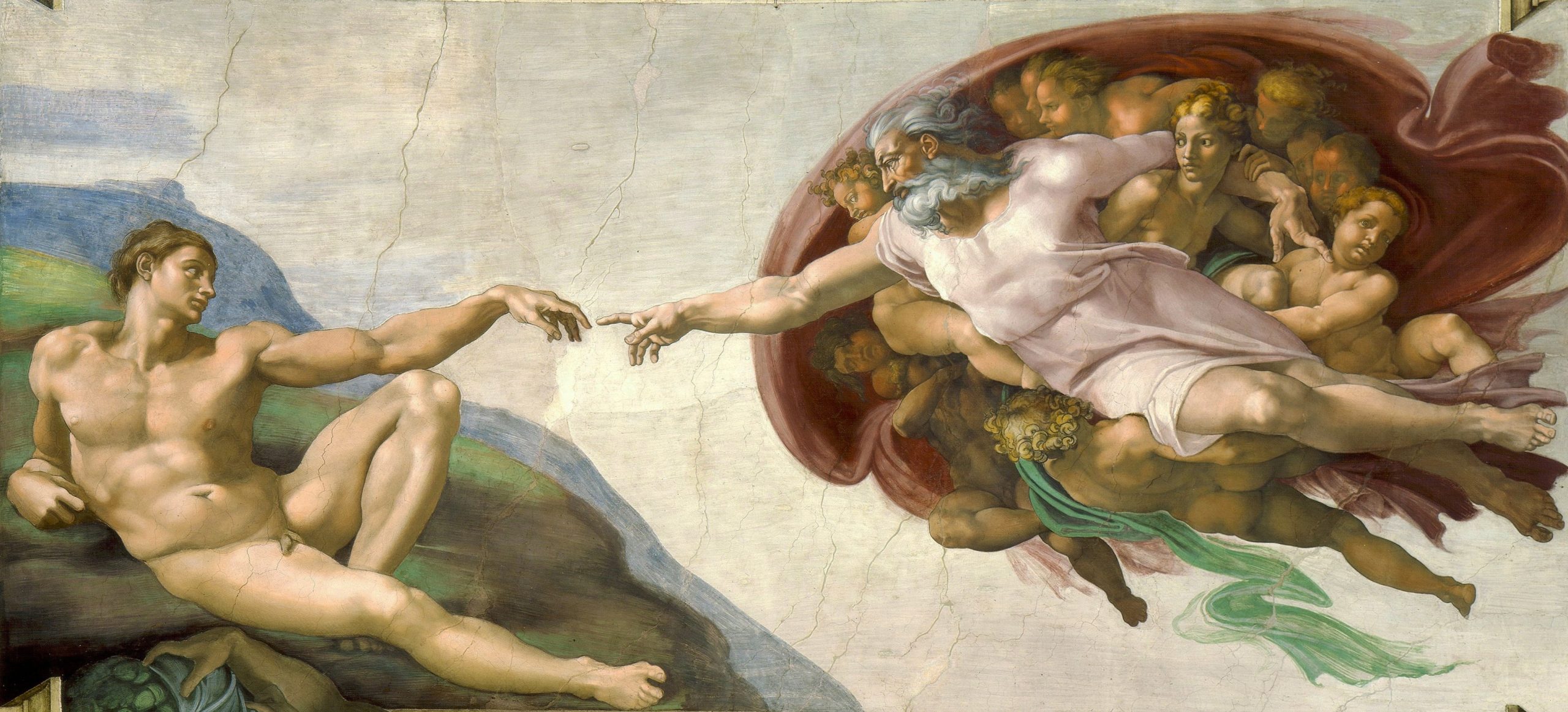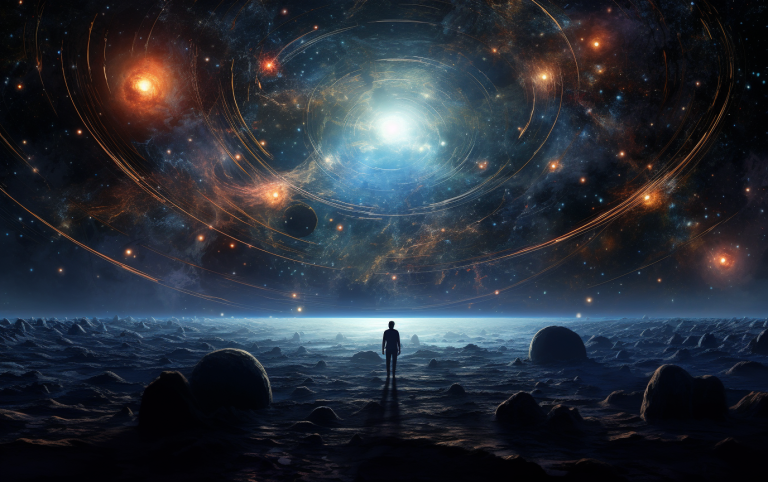
One of the very fair critiques that I often hear from Atheists is that there’s no evidence for the existence of God in the material world, the Epicurean world of Atoms and Void, so they conclude that God doesn’t exist.
All I can say in response to this is ‘keep looking!’ The search for God is always a meaningful endeavour, the fact that you seek is where the sensation of meaning comes from, if you do not seek then the experience and the expression of meaning in your life is impossible.
God might not exist as a tangible thing in the universe of atoms and void, but that isn’t a reason not to go on looking. Is God in the atom, probably not, what about the subatomic particles that make up the atom, probably not! Can God be found in the empty spaces between elementary particles, again probably not, but what about those extra dimensions proposed to us by string theorists? Probably not? The more we look at the origins of the material world, the more matter we tend to find, so who knows? There’s the possibility that God is out there somewhere and it’s always meaningful to seek, but I do know that we’ve got to keep on looking, we’ll never know for sure if we all collectively agree that the question is too hard, and we give up!
So, what do we do when we look at the world beyond our skin and find it to be empty, lacking in God and devoid of meaning and thus unable to provide the sensation of wholeness that we so desperately need to be psychologically healthy. We can’t all own a particle accelerator and rip the universe apart in our search for God, but there is something that we can all do, and that is to look within as per the following quotation from one of Carl Jung’s letters.
“Your vision will become clear only when you can look into your own heart. Who looks outside, dreams; who looks inside, awakes,” – Carl Gustav Jung
Let me reiterate that whenever the honest thinker goes looking for God, he’s really looking for ultimate wholeness, the opposite of the alienation of the modern world, at least according to Carl Jung, the influential Swiss psychiatrist and psychoanalyst who founded analytical psychology and was influential in the fields of psychiatry, anthropology, archaeology, literature, philosophy, psychology, and religious studies. He developed several concepts that have had a lasting impact on psychology, including:
Analytical Psychology, which is a branch of psychology that emphasizes the importance of the individual psyche and the personal quest for wholeness. Then there’s the Archetypes, the Universal, archaic symbols and images that derive from the collective unconscious and are the psychic counterpart of instinct. The collective unconscious being that part of the unconscious mind that is derived from ancestral memory and experience and as such, common to all humankind.
So, it’s within the collective unconscious, armed with our understanding of Archetypes that we should begin. He who looks outside dreams, he who looks inside awakens. In Jungian psychology, the God archetype is symbolic of several profound concepts. It represents the soul’s whole-making function, which drives individuals toward giving themselves completely to something or someone, it also initiates our desire for the absolute.
The God archetype expresses the spiritual content of the human psyche and represents the idea of wholeness or completeness, embodying both good and evil, darkness as well as light. Not only that, but the God archetype serves as a fundamental blueprint of the human psyche, because of the way that it shapes our perceptions, behaviours, and relationships in both conscious and unconscious ways. It is considered one of the ancient guardians of our deepest truths and desires, whispering to us from the depths of our unconscious minds whilst encouraging us to become who we really are. From this perspective, even atheists engage with the concept of God within their psyche, whether they recognise it or not.

